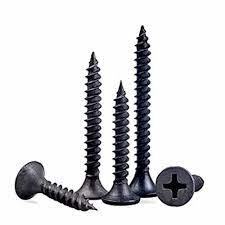Comparison of China Self Tapping Screws and Self Drilling Screws for Various Applications
Understanding the Differences Between China Self-Tapping Screws and Self-Drilling Screws
In the world of fasteners, screws play a crucial role in various applications, from construction to DIY projects. Among the most commonly used types are self-tapping screws and self-drilling screws. While both are designed to fasten materials together without the need for pre-drilling, they have distinct features and uses that set them apart. This article explores the differences between self-tapping screws, particularly those manufactured in China, and self-drilling screws.
1. Definitions and Basic Functions
Self-tapping screws are designed to create their own thread when driven into materials. They have a sharp, pointed end that enables them to penetrate a substrate, which can be metal, wood, or plastic, and form a thread in the process. This process eliminates the need for pre-drilling a hole, enabling faster installation. In contrast, self-drilling screws come with a drill bit-like tip that allows them to drill through materials before tapping their own threads. This type is particularly beneficial for tougher materials, such as metal, where additional drilling power is required.
Self-tapping screws are versatile and widely used in various applications, including woodworking, cabinetry, and light metal assemblies. They are effective for softer materials, where penetration and thread formation occur without significant resistance. Self-drilling screws, however, are essential when working with harder materials or thicker bases. They are extensively used in construction, particularly in metal roofing and siding, where heavy-duty fastening is necessary.
china self tapping screw vs self drilling

3. Manufacturing and Quality Concerns
China is known for producing a vast range of fasteners, including both self-tapping and self-drilling screws. While many manufacturers offer quality products, the variance in quality can be significant. The materials used, precision in manufacturing, and quality control processes can differ widely among suppliers. Chinese-made self-tapping screws may often be available at lower prices, but buyers need to exercise caution. Ensuring that the screws meet international standards (such as ISO or ASTM) is fundamental to avoid potential failures in applications requiring strength and reliability.
4. Cost Considerations
One of the most appealing aspects of sourcing self-tapping and self-drilling screws from China is the cost-effectiveness. Many manufacturers can produce high quantities at lower costs due to reduced labor expenses and optimally scaled production processes. However, it's essential to balance cost with quality. A lower price might indicate inferior materials or lack of stringent quality testing, which can lead to failures during application.
5. Conclusion
Both self-tapping and self-drilling screws serve essential functions in fastening applications but are designed for different uses. Understanding the distinctions between the two can significantly affect the outcome of a project. When considering sourcing these screws from China, it is vital to prioritize quality alongside cost. Buyers should research manufacturers thoroughly, request samples, and check for compliance with necessary standards to ensure that the screws used are not just affordable but also reliable. By making informed decisions, customers can benefit from the advantages that both types of screws offer while minimizing the risks associated with subpar products.
-
Top Choices for Plasterboard FixingNewsDec.26,2024
-
The Versatility of Specialty WashersNewsDec.26,2024
-
Secure Your ProjectsNewsDec.26,2024
-
Essential Screws for Chipboard Flooring ProjectsNewsDec.26,2024
-
Choosing the Right Drywall ScrewsNewsDec.26,2024
-
Black Phosphate Screws for Superior PerformanceNewsDec.26,2024
-
The Versatile Choice of Nylon Flat Washers for Your NeedsNewsDec.18,2024










